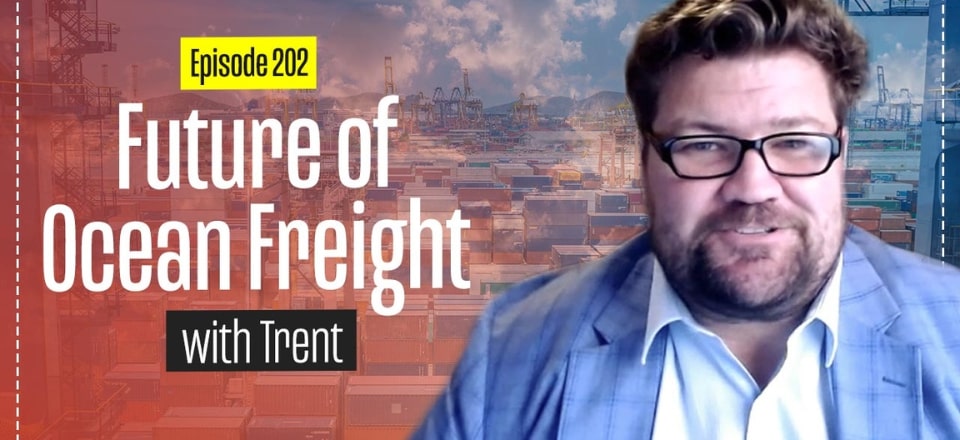Have you ever found yourself wondering what the future holds for the world of international logistics and ocean freight?
In a field that’s always on the move, it’s essential for those working within it to stay current with the latest updates and emerging trends.
Join Trent Morris as he navigates the seas of transformation in ocean freight and logistics by watching the full video below!
Insights from the TransPacific Maritime Conference
Rob: So, Trent, you’re going to tell us about the future of international logistics and shipping. What’s your source?
Trent: Sure, Rob! I recently attended the TransPacific Maritime conference in Long Beach, CA, a major event where top industry players gather, including CEOs of major shipping lines, intelligence agencies, and U.S. government bodies. It’s invaluable for understanding the industry’s direction and timeline.
Carbon Neutrality Goals and Fuel Alternatives
Rob: Great! We recently discussed the current state of ocean freight, but where is the industry headed? New technologies?
Trent: Definitely! Technology is driving everything – ships, ports, and beyond. The big focus we heard at the conference was on achieving carbon neutrality by 2050, a mandate set by the International Maritime Organization (IMO). Some shipping lines even aim for halfway there by 2030, which brings big changes in fuel usage. The current “bunker” fuel, a pollutant, is gradually being replaced by alternatives like ammonia, synthetic LNG, hydrogen, and even nuclear power. Nuclear could be a feasible zero-carbon option, despite its own waste challenges.
Port Infrastructure and Automation Advances
A key challenge lies in port infrastructure, which hasn’t kept pace with shipping demands. Some ports are starting to use automated guided vehicles (AGVs) to move containers, but with massive 22,000 TEU vessels, balance is a concern, making full automation tough. To further reduce emissions, the IMO is pressing shipping lines to retire older vessels, typically those from 2009 or earlier. Financially, many shipping lines are in a strong position to make these upgrades, having benefited from a period of profitability.
Rob: Sounds like a lot of changes ahead!
Trent: Absolutely, Rob. Governments and consumers are pushing for a more sustainable and efficient shipping industry, which means big changes across the board. We can expect increased investment in infrastructure, fuel technology, and perhaps even in regulations, all working together to reshape the industry in the coming years.
Related articles on this topic have appeared throughout our website, check them out:
- The Challenge of Freight Container Utilisation and Why it Matters
- Container Freight Costs and Forecasting: Intrinsically Linked & Frustratingly Challenging
- Do You Know When it’s Time for a Freight Review?
Editor’s Note: The content of this post was originally published on Logistics Bureau’s website dated May 31, 2023, under the title “Ocean Freight Future Trends with Trent Morris“.


